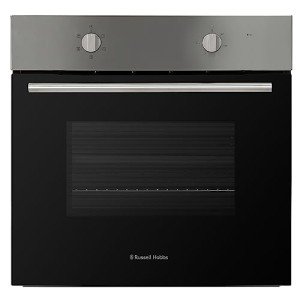10 Healthy Integrated Cooker And Hob Habits
The Rise of Integrated Cookers and Hobs: A Comprehensive Guide
In the modern-day kitchen, effectiveness, style, and space optimization are essential factors to consider for property owners and striving chefs alike. Among the most considerable patterns in kitchen design is the increasing appeal of integrated cookers and hobs. These appliances not only enhance the cooking experience however also raise the aesthetics of the kitchen area. This short article explores the qualities, benefits, functions, and factors to consider surrounding integrated cookers and hobs, offering readers with an in-depth understanding of their benefits.
What Are Integrated Cookers and Hobs?
Integrated cookers and hobs refer to cooking appliances that are built into the kitchen cabinetry, offering a seamless look and maximizing the use of space. Integrated appliances are created to mix with the visual of the kitchen instead of standing out like standard designs.
Kinds Of Integrated Cookers and Hobs
Usually, integrated cooking appliances consist of:
- Integrated Hobs: These are cooktops that fit flush into the kitchen counter top. They can be gas, electric, induction, or a mix of these innovations.
- Integrated Ovens: Built directly into the cabinetry, integrated ovens can come as single, double, or multifunctional models, using varied cooking capabilities.
- Combination Units: Some models combine an oven and hob into a single device, offering a compact option for smaller sized cooking areas.
Advantages of Integrated Cookers and Hobs
1. Space Optimization
Integrated cookers and hobs are perfect for small kitchen locations. By embedding the cooking appliances into kitchen cabinetry, homeowners can use their kitchen area more efficiently, leaving more room for meal preparation and motion.
2. Visual Appeal
These appliances provide a smooth and modern aim to the kitchen. The ability to choose surfaces and incorporate them into the surrounding kitchen cabinetry develops a unified design that improves the total look of the kitchen.
3. Improved Functionality
Integrated cookers and hobs often feature advanced innovation functions, such as smart controls, timers, and cooking presets, enhancing user experience and allowing effective cooking.
4. Improved Safety
Numerous integrated hobs feature precaution such as child locks and automatic shut-off features. This makes them more secure than standard freestanding designs, especially in families with children.
5. Increased Resale Value
Modern homes with integrated appliances frequently draw in higher resale worths. Prospective purchasers search for streamlined designs and contemporary conveniences, making integrated cooks and hobs a smart financial investment.
Features to Consider When Choosing Integrated Cookers and Hobs
When picking integrated cookers and hobs, numerous functions ought to be taken into account:
1. Cooking Technology
- Induction: Provides fast and effective cooking, simple to tidy, and gives accurate temperature level control.
- Gas: Offers standard cooking benefits with instantaneous heat but needs sufficient ventilation.
- Electric: Provides consistent heat and is readily available in various designs.
2. Size and Configuration
- Oven Capacity: Should be enough for the home's cooking needs.
- Hob Size: Depending on the number of burners/vessels required for synchronised cooking.
3. Control Mechanisms
- Touch Controls: Provide a streamlined appearance and ease of cleansing.
- Knob Controls: Offer tactile feedback and are user-friendly.
4. End up and Style
Integrated cookers and hobs come in different surfaces, including stainless-steel, black glass, and even adjustable options to match cabinets.
5. Energy Efficiency
Select energy-efficient designs that can save money on utility costs and lower environmental effect.
Maintenance and Care
To keep the performance and durability of integrated cookers and hobs, regular maintenance is essential:
- Clean the surface areas: Regularly wipe down the hob and oven surface areas to prevent residue accumulation.
- Inspect seals and gaskets: Ensure that oven seals are undamaged for effective cooking.
- Service routinely: Schedule professional maintenance to keep the appliances in leading shape.
FAQs
1. What is the difference between built-in and integrated cookers?
Answer: Built-in cookers are developed to be set up within kitchen cabinets, whereas integrated cookers are created to perfectly mix with the cabinetry for a more cohesive appearance.
2. Are integrated appliances more expensive?
Response: Generally, integrated appliances may have a greater upfront cost compared to freestanding systems since of their style and the installation requirements. Nevertheless, they can offer long-term cost savings in energy efficiency.
3. Can visit my web site install integrated cookers and hobs myself?
Answer: While some homeowners might have the ability to deal with the installation themselves, working with an expert is advised to ensure correct fit and function, especially for gas appliances.
4. Are integrated cookers and hobs much easier to clean up?
Answer: Integrated hobs typically have less crevices, making them simpler to clean up. Nevertheless, the specific cleansing requirements will depend upon the products used in the device.
5. What should I check before purchasing?
Answer: Check the size of your kitchen space, cooking requirements, energy effectiveness rankings, and compatibility with existing kitchen cabinetry.
Integrated cookers and hobs are becoming increasingly favored in modern cooking areas, integrating performance with visual appeal. By comprehending their advantages, features, and maintenance needs, house owners can make informed decisions when picking the right appliances for their cooking areas. As trends in kitchen style continue to develop, integrated cooking solutions will likely remain at the forefront of home development, promising both practicality and design.
